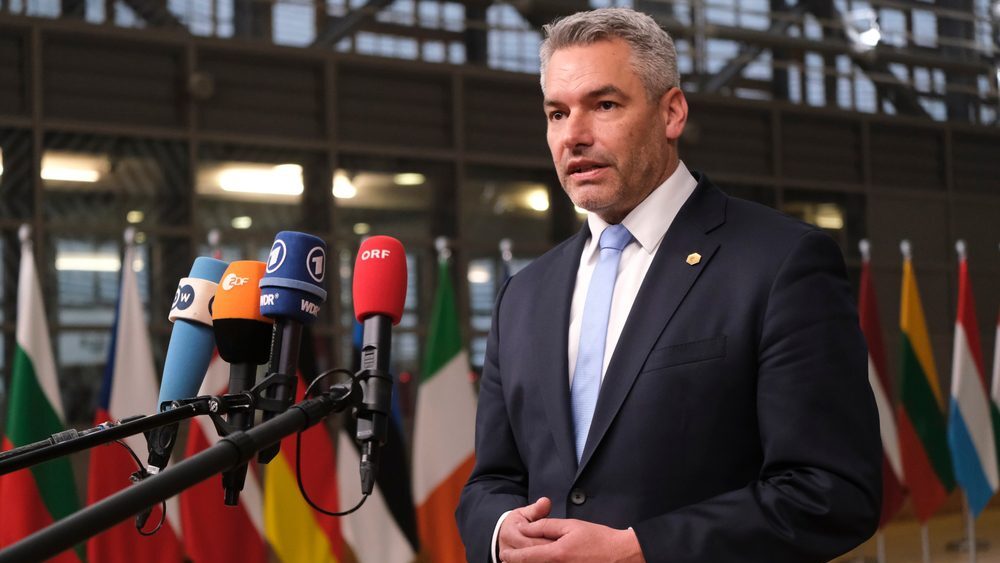
Photo: Alexandros Michailidis / Shutterstock.com
Austrian Chancellor Karl Nehammer raised the possibility of outsourcing his nation’s asylum policy to African nations such as Rwanda as his conservative ÖVP party continues to trail in the polls ahead of next year’s national elections.
Austria is just one of many European countries currently facing a fresh summer surge in asylum applications as many capitals look to North African states such as Tunisia to help beef up border security.
Vienna was vocal in calling for a unified European approach to handling the asylum issue in March, with the Austrian government calling for the implementation of the Dublin System, which requires asylum applicants to apply in their first country of entry into the EU to prevent the flow of migrants into northern Europe.
In his remarks, Chancellor Nehammer praised a recent deal between Rwanda and Denmark, which he said could serve as a model to reduce asylum numbers across Europe more generally and prevent bogus applicants from bouncing between jurisdictions.
Plagued by tribal violence and the Hutu genocide against Tutsis during the 1990s, Rwanda has stabilised over the past twenty years under the leadership of its pro-Western President Paul Kagame and the country has become a major Western partner in East Africa.
In exchange for accepting failed asylum seekers into its country, Rwanda was earmarked to receive financial support from the UK government similar to its asylum deal with Britain. However, the British agreement was shot to pieces by legal difficulties and political opposition earlier this year.
While the Austrian Chancellor voiced his hopes that Rwanda could be used as an asylum dumping ground for the EU at large, similar to the doomed UK deal, any plans are likely to be frustrated by the ECHR and legal challenges from open border NGOs. According to media reports, it is so far unknown how Austria’s plans for its own Rwanda plan will differ from the UK’s and whether it will incur the wrath of EU courts.
The asylum crisis is a permanent issue in Austrian politics with Nehammer’s centre-right ÖVP losing ground in its traditional Christian Democratic strongholds to a buoyant FPÖ. Meanwhile, the opposition Social Democrats endured a costly leadership battle between intra-party factions where the issue of how to address immigration featured prominently.
